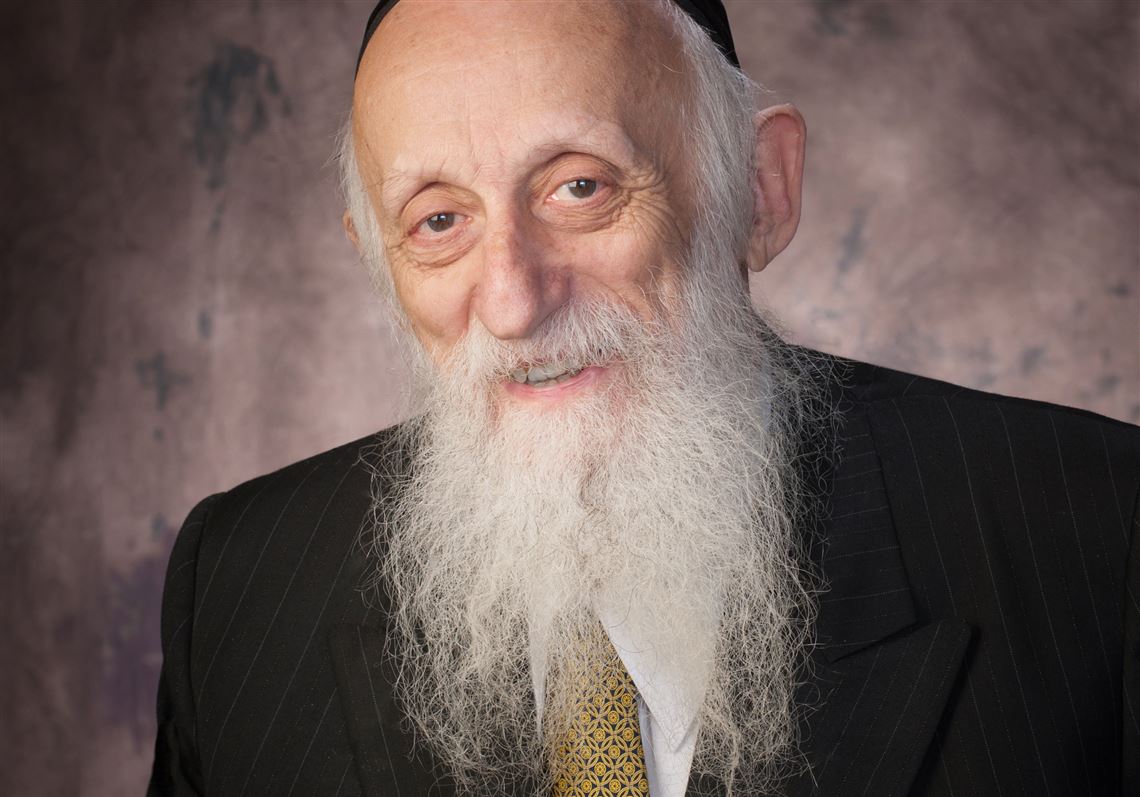The pursuit of pleasure can trap a person into drug and alcohol addiction and the only way out is when that person wants to change, reflected addiction treatment pioneer Abraham Twerski in a recent phone interview from his home in Israel.
“Our focus is what can we do to change things,” said Dr. Twerski, 87, a rabbi and a psychiatrist. “The one thing we learn in treating addiction, you can only change yourself.”
The opioid epidemic is an aspect of society’s addiction to pleasure, Dr. Twerski said, “I see no reason why it should get any better.” Preventing drug addiction means living by a different philosophy, but that is a tall order, he said.
“Unless we can give the young people a reasonable idea of what else there is, we’ll never get rid of the drug problem,” he said. “We’re addicted to seeking pleasure. As long as that’s the attitude, the attitude of the adult world, the young world is going to follow.”
Dr. Twerski will be honored June 24 along with Gateway Rehab, the agency he founded, for their leadership in addiction treatment and recovery as recipients of the 2018 Pursuer of Peace award from the Rodef Shalom Congregation in Shadyside. A dinner will be held at Rodef Shalom, 4905 Fifth Ave., followed by the award presentation in the sanctuary at 7:30 p.m., which is open to the public.
Dr. Twerski will be unable to attend; he said he uses a wheelchair and travel is too difficult. His award will be accepted by Kenneth Ramsey, Gateway CEO for more than 40 years. Accepting for Gateway will be Paul Bacharach, president and CEO since 2013. The award also comes at a time when Gateway is mourning the June 9 death of its longtime medical director, Neil Capretto, 62, from cancer.
Gateway Rehabilitation Center had its first patient Jan. 2, 1972. The Gateway Rehab system now has more than 20 locations throughout Western Pennsylvania and Ohio, with about 1,700 patients every day.
Fighting addiction with treatment can only focus on one person at a time, Dr. Twerski said. He recalled a story told by a rabbi more than a century ago:
“When I was younger I was so inspired and ambitious, I knew I could change the world,” Dr. Twerski recounted. “As I grow older, I know I can’t. I think I can change my country; but I can’t. But maybe my community I can change. I grow older and wiser and I realize the only thing I can change is myself.”
Can the community do anything to help an individual?
“I don’t want to be a pessimist, but I don’t think the community can do a damn thing,” he said. “If we focus on ourselves, ultimately we can change ourselves.”
He said attempts to change the community haven’t worked: mandatory prison sentences in the U.S., no laws against drugs in some countries and executions without trial in others.
“We went to extremes, from one to the other,” he said.
If a person hits rock bottom with drugs and wants help, Dr. Twerski said, “We can treat that individual, with rehab, 12-step programs … But as long as they’re looking for pleasure, they’re never going to beat it.”
When people decide to have something else in their lives, other than pleasure, they might change, he said.
“Hopefully, if I have a sincere philosophy of life — that life is more than getting pleasure — it will help my children, they get a lesson from me. You can’t do that communitywide; you begin one family at time.”
Marriages that break up at the first trouble, even when there are children involved, is another sign of a pleasure-seeking society, he said.
“It’s a self-centered, hedonist philosophy of life,” he said, adding that treatment can help only when a person is no longer getting pleasure from drugs.
But it does work, he said: “People came to Gateway severely addicted and they’re now clean 30-40 years. It can be done. The person has to realize, ‘My search for pleasure has backfired.’ The price is horrible.”
Alcohol is a drug, too, he said, and every individual has his or her own rock bottom.
“There was a young man, very bright, with a big construction company,” Dr. Twerski recalled. “He was so efficient six months on the job he got a promotion; then got another promotion and another. He drank.” His wife left him and took their three daughters to California.
“He continued to work, make a lot of money and continued to drink,” Dr. Twerski said. “His coworkers said to him, ‘Jim, you’re drinking too much.’ He said, ‘You’re just jealous of my position.’
“He always covered up his mistakes, but eventually he was fired. He was out of a family, out of a job, but still had money in the bank. He drank away his money, his house, his car, his welfare check, he slept on park benches. At age 49, he came to St. Francis [Hospital, which was in Lawrenceville] for alcohol treatment. He was gone in two days.”
After two years, Dr. Twerski said, he came back.
“Why are you more ready now for treatment?” the doctor said he asked Jim. Jim responded, “Did you know how much you get for your blood? Sixteen beers. I’ve been doing it for a year.”
Dr. Twerski said the man had gone from raising money for the United Way at his company to panhandling for quarters on Liberty Avenue, Downtown. That was his turning point; he got treatment.
“Everybody has the particular point when they’re ready to give up drinking or drugs,” he said. A person will say, “I have to do this for myself, show my family that I’m interested in doing something in life other than getting pleasure.”
At Gateway, Mr. Bacharach said the staff tries to focus on the individual needs of each patient. “Everyone who comes in has generally some traumatic situation they have gone through.”
Mr. Bacharach said the senior staff and board are thrilled with the Pursuer of Peace recognition for Gateway and its founder.
“Abe is such a beloved figure within the organization,” he said. “The message that we try to address the body, mind and spirit is still our mission.”
When Gateway began, Dr. Twerski was founder and chief visionary, Mr. Bacharach said, and was named emeritus medical director in 2001. Dr. Capretto had managed the direction of clinical programming from the time he arrived in 1986.
“Neil was the boots on the ground for 32 years … Apart from being the wonderful human being that Neil was, he was extremely knowledgeable about the various changes in approaches to treatment over time. He was instrumental in using medication-assisted treatment as an option for patients coming into our programs,” Mr. Bacharach said.
“The scientific evidence demonstrated superior outcomes when people have a combination of counseling and the support of certain medications. That was a big philosophical shift for our organization.”
“We’ve been able to amalgamate the traditional approach, which tries to steer people to the support of 12-step groups, and also evidence-based practices. Opioid medications like Vivitrol and Suboxone help people stay engaged in treatment and reduce the chance for relapse.”
In 2016, Gateway was named an opioid use disorder center of excellence by the state, with funding to help navigate the needs of patients.
The center provides care coordination, Mr. Bacharach said. “Addiction also involves behavioral and physical and social needs. They get help with housing and jobs, and getting to Narcotics Anonymous meetings.”
They’re seeing positive results, he said. “People stay in treatment longer with coordinated recovery support.”
With the loss of Dr. Capretto, he said, Gateway will be looking for a medical director. Programming will continue, he said, with three other physicians providing medical and psychiatric support as well as the services of a physician’s assistant.
“It’s an important position,” Mr. Bacharach said. “I expect we will take some time to find someone to lead in the way Dr. Twerski and Dr. Capretto did.”
Jill Daly: jdaly@post- gazette.com or 412-263-1596.
First Published: June 18, 2018, 10:44 a.m.















